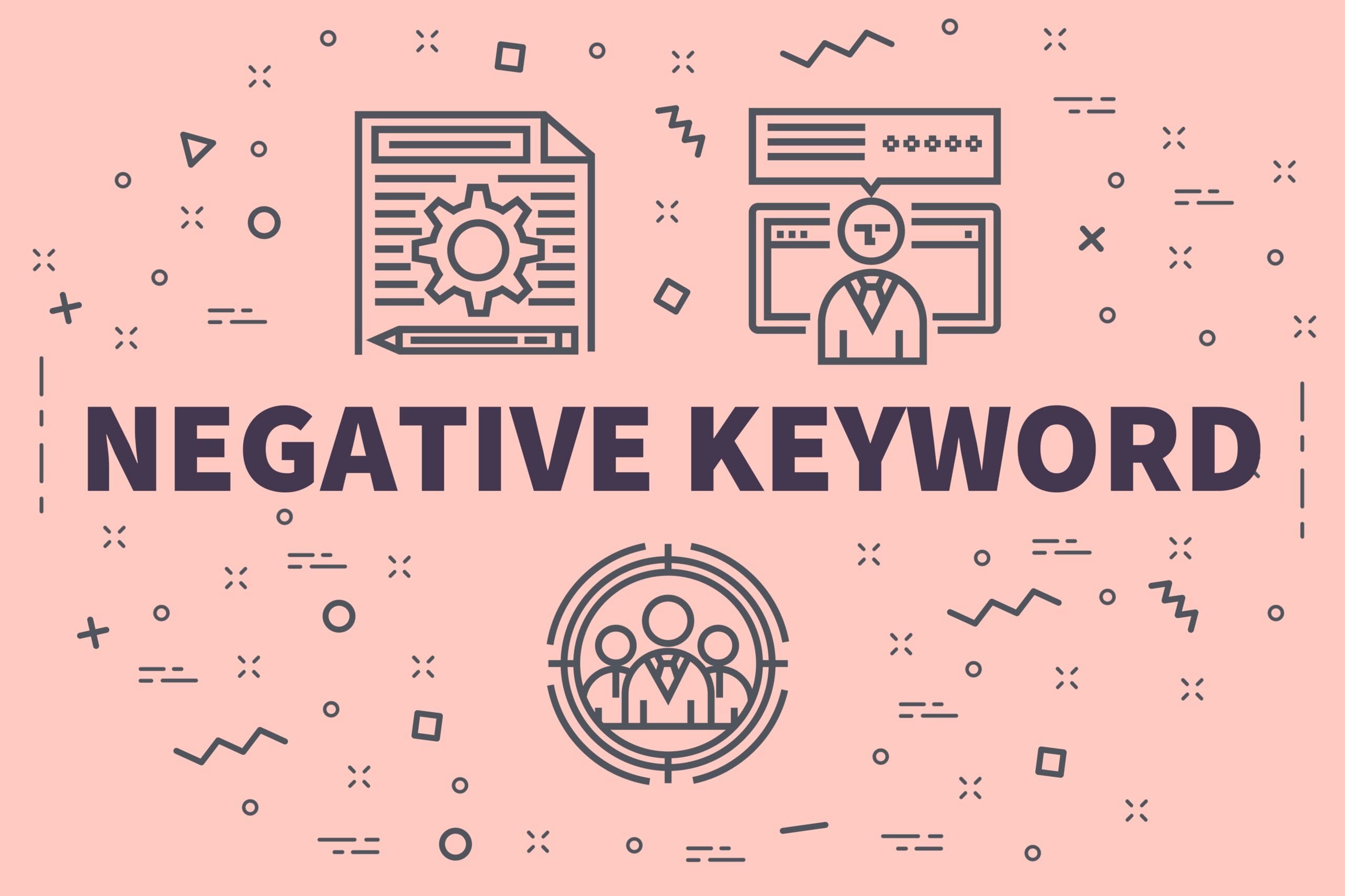Negative Keywords: Precision in Search Engine Marketing
In the ever evolving landscape of paid search / PPC advertising, precision and relevance are paramount. One of the essential tools in the arsenal of digital marketers is the use of Negative Keywords. These strategic keywords play a crucial role in optimizing online advertising campaigns, ensuring that ads are displayed to the most relevant audience. Understanding their nuances is vital for businesses aiming to maximize their return on investment and improve the overall effectiveness of their online marketing efforts.
What Are Negative Keywords?
Negative Keywords are specific terms or phrases that advertisers deliberately exclude from their online advertising campaigns. Unlike regular keywords, which trigger the display of ads when users search for them, negative keywords prevent ads from being shown to users whose search queries contain these excluded terms. By refining the audience that sees their ads, businesses can improve the quality of leads, increase clickthrough rates, and reduce wasted ad spend.
Key Concepts
- Irrelevance Elimination: Negative keywords help advertisers filter out irrelevant traffic. For instance, if a business sells high end smartphones, they might use “cheap” and “free” as negative keywords to prevent their ads from appearing in searches related to low cost or complimentary products.
- Budget Optimization: By excluding irrelevant or low converting search queries, advertisers can allocate their budget more efficiently. This optimization ensures that resources are directed toward reaching the most valuable audience, maximizing the return on investment.
- Enhanced Click Through Rates (CTR): Negative keywords improve the CTR of ads by targeting a more specific audience. When ads are shown to users genuinely interested in the product or service, they are more likely to click through, leading to higher conversion rates and improved overall campaign performance.
- Improved Quality Score: Quality Score, a metric used by search engines like Google, evaluates the relevance of keywords, ad copy, and landing pages. By utilizing negative keywords effectively, advertisers can enhance their Quality Score, which can result in higher ad placements and lower costs per click (CPC).
Implementation Strategies
- Comprehensive Research: Advertisers should conduct thorough research to identify potential negative keywords related to their products or services. Analyzing search query reports and understanding customer behavior can provide valuable insights into irrelevant terms that need to be excluded.
- Regular Monitoring and Updating: Online advertising campaigns are dynamic, and customer behavior evolves over time. Advertisers should regularly monitor search queries and update their lists to adapt to changing trends and customer preferences.
- Phrase Match and Broad Match Modifiers: Negative keywords can be applied as exact match, phrase match, or broad match modifiers. Advertisers should choose the appropriate match type based on the specificity of the term they want to exclude. Exact match negative keywords offer precise control, while broad match modifiers allow for a broader exclusion.
Strategic Implementation with Real World Examples
ECommerce Precision:
Scenario: An online shoe store specializing in premium leather shoes.
Negative Keywords: “cheap shoes,” “free shoes,” “discount footwear.”
Impact: By excluding users looking for inexpensive or free shoes, the campaign focuses on attracting customers interested in quality leather footwear, maximizing the chances of conversions and preserving the marketing budget for a more receptive audience.
Educational Services Optimization:
Scenario: An online tutoring service offering paid courses.
Negative Keywords: “free education,” “online learning discounts,” “scholarships.”
Impact: By filtering out users seeking free or discounted educational resources, the ads target serious learners willing to invest in quality education, improving the conversion rate and ensuring a higher return on investment.
Travel Industry Finesse:
Scenario: A high end travel agency specializing in luxury vacations.
Negative Keywords: “budget travel,” “cheap flights,” “discount accommodations.”
Impact: Excluding travelers searching for budget options ensures the agency’s ads reach travelers seeking luxurious experiences. This precise targeting not only enhances the brand image but also attracts clients willing to spend more on tailored, high end travel packages.
Continuous Refinement and Adaptation
The digital landscape is dynamic, and user behavior evolves over time. To stay ahead, businesses must continually refine their list of negative keywords based on ongoing analysis of search query reports and customer interactions. What may have been irrelevant in the past could become a potential exclusion tomorrow, emphasizing the need for continuous adaptation and vigilance.
Wrapping Up
In conclusion, Negative Keywords represent a fundamental aspect of successful online advertising campaigns. By strategically excluding irrelevant terms, businesses can refine their target audience, improve ad relevance, enhance clickthrough rates, and optimize their budget allocation. In the competitive digital landscape, mastering them is essential for advertisers seeking to maximize the impact of their online marketing initiatives. By embracing this strategic approach, businesses can achieve a higher level of precision in their advertising efforts, leading to increased conversions, improved customer engagement, and long term success in the online marketplace.


